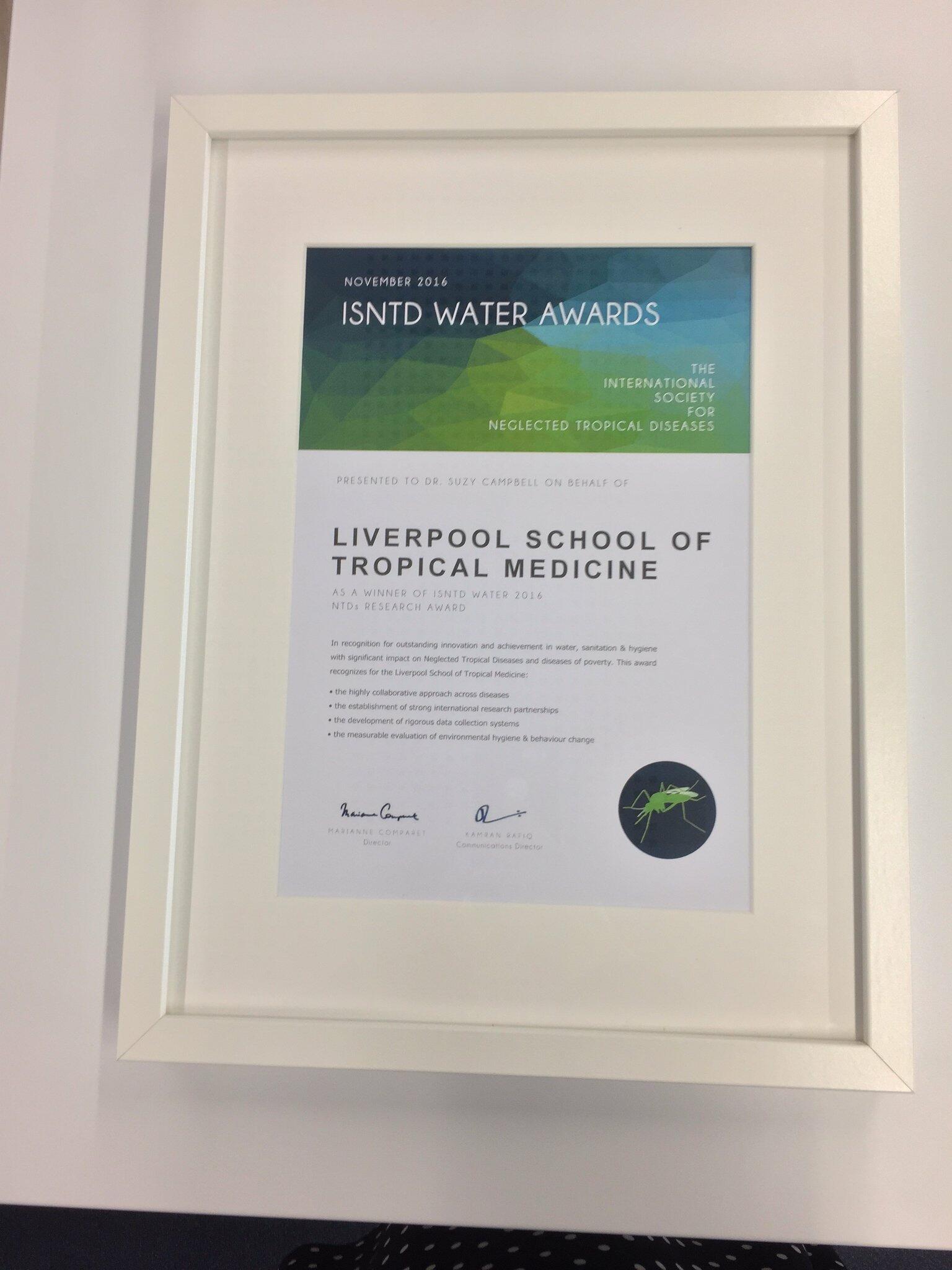
Liverpool School of Tropical Medicine (LSTM) won an award on Tuesday, 1st Nov. 2016 for using innovative approaches to control Neglected Tropical Diseases.
The prize recognised the work of one of LSTM’s consortia – COUNTDOWN, which has integrated WASH (Water, Sanitation and Hygiene) in its attempts to control Schistosomiasis and Soil-transmitted Helminthiasis in its partner countries (Cameroon, Liberia, Ghana)
The International Society for Neglected Tropical Diseases organised the Water Conference to look at technology and innovation in WASH by inviting key stakeholders, researchers, NGOS, and policy makers who are involved in projects that seek to improve public health.
Dr Suzy Campbell represented COUNTDOWN at the Water Conference organised by International Society for Neglected Tropical Diseases (ISNTD). She gave a presentation on “The Role of WASH in Schistosomiasis and Soil-transmitted Helminthiasis Control”.
In accepting the award, Dr Campbell said: “It was a great surprise and an honour to receive this award on behalf of COUNTDOWN and LSTM. I know the team are pretty excited that our attempts to adopt a multidisciplinary approach in our research at COUNTDOWN has been recognised by an external organisation. We are very keen to integrate WASH in the control and hopefully, the elimination of Schistosomiasis and Soil-transmitted helminths in our work.”
The award recognised the highly collaborative approach across diseases, establishing strong international research partnerships, developing rigorous data collection systems and attempting to measure and evaluate environmental hygiene and behavioural change.
Mass Drug Administration of deworming drugs such as Praziquantel and Albendazole plays an important role in reducing the morbidity associated with Schistosomiasis and Soil-transmitted helminths with school children. But the NTD community understands that it is not nearly enough as a solution to achieve control, talk less of elimination. Other factors such as access to water, sanitary conditions in communities with prevalence of these diseases and behavioural attitudes to hygiene play an important role to curb re-transmission of these diseases.
To find out more on the timeline of events of the Water Conference, please check out COUNTDOWN’s Storify here.